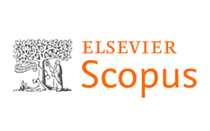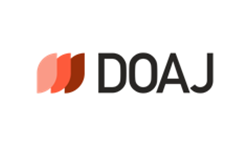СУСПІЛЬСТВО 4.0: ЗАГАЛЬНІ ЕКОНОМІЧНІ НАСЛІДКИ
Ключові слова:
Індустрія 4.0, суспільство 4.0, суспільство 5, технології, цифровізація.Анотація
Термін «Суспільство 4.0» зазвичай використовують для означення сукупності осіб у розвинутих економіках, об’єднаних у сучасне культурне суспільство, яке природним чином зазнає значного впливу технологій і цифровізації та помітно впливає на переважну більшість сфер людської життєдіяльності. Поняття «Суспільство 4.0» тісно пов’язане і за суттю тотожне широко дискутованиму поняттю «Індустрія 4.0», також відомому як «Четверта промислова революція». Однак, незважаючи на високу актуальність, це питання не набуло настільки широкого висвітлення у академічній літературі, як очікувалося. В цьому контексті частіше наголос робиться на понятті «Суспільство 5.0» як концепції майбутнього суспільства, на яке поступово перетворюється суспільство нинішнє. Мета статті – представити «Суспільство 4.0» у його фактичній формі та визначити його загальні потенційні екзогенні та ендогенні наслідки, зокрема в економічній сфері.
Класифікація за JEL: O14; O30; P00.
Посилання
Čada, R., Frydýšek, K., Sejda, F., & Tiller, P. (2018). Evaluation of locking bone screw heads. In C. Fischer & J. Náprstek (Eds.), Proceedings of 24th International Conference on Engineering Mechanics (pp. 133-136). Institute of Theoretical and Applied Mechanics of the Czech Academy of Sciences. https://doi.org/ 10.21495/91-8-133
Čada, R., & Pektor, T. (2021). Development of a low-cost drawing tool for a press brake. In Proceedings of the 30th Anniversary International Conference on Metallurgy and Materials (pp. 241-246). Tanger Ltd. https://doi.org/10.37904/metal.2021.4117
Castells, M. (1997). The information age: Economy, society and culture. Volume II: The power of identity. Blackwell. European Commission, Directorate-General for Research and Innovation. (2013). Factories of the future – Multi-annual roadmap for the contractual PPP under Horizon 2020. Publications Office. https://data.europa.eu/doi/10.2777/29815.
Ferreira, A. C. D. A., Titotto, S. L. M. C., & Akkari, A. C. S. (2022). Urban agriculture 5.0: An exploratory approach to the food system in a super smart society. International Journal of Mathematical, Engineering and Management Sciences, 7(4), 455-475. https://doi.org/10.33889/IJMEMS.2022.7.4.030
Fukuyama, M. (2018). Society 5.0: Aiming for a new human-centered society. Japan Spotlight, July–August, 47-50. https://www.jef.or.jp/journal/pdf/220th_Special_Article_02.pdf
Gladden, M. E. (2019). Who will be the members of society 5.0? Towards an anthropology of technologically posthumanized future societies. Social Sciences, 8(5), 148. https://doi.org/10.3390/socsci8050148
Harayama, Y. (2017). Society 5.0: Aiming for a New Human-Centered Society. Japan’s Science and Technology Policies for Addressing Global Social Challenges. Hitachi Review, 66 (6), 554-559. http://www.hitachi.com/rev/archive/2017/r2017_06/trends/index.html
Helbing, D. (2016). Society 4.0: Upgrading society, but how? ResearchGate. https://www.researchgate.net/publication/304352735_Society_40_Upgrading_society_but_how
Huws, U. (2016). Platform labour: Sharing economy or virtual wild West? Journal for a Progressive Economy, 7. http://www.progressiveeconomy.eu/content/platform-labour-sharing-economy-or-virtual-wild
iDNES.cz. (2022): Průmysl 5.0. https://www.idnes.cz/magaziny/specialy/prumysl5-0.A221104_114741_magazin-special2r_pecve
MacGregor Pelikánová, R., MacGregor, R. K., & ČEernek, M. (2021). New trends in codes of ethics: Czech business ethics preferences by the dawn of COVID-19. Oeconomia Copernicana, 12(4), 973–1009. https://doi.org/10.24136/oc.2021.032
MacGregor Pelikánová, R., & Hála, M. (2021). CSR unconscious consumption by generation Z in the COVID-19 era – Responsible heretics not paying CSR bonus? Journal of Risk and Financial Management, 14(8), 390. https://doi.org/10.3390/jrfm14080390.
MacGregor Pelikánová, R., & Rubáček, F. (2022). Taxonomy for transparency in non-financial statements – clear duty with unclear sanction. Danube, 13(3), 173-195. https://doi.org/10.2478/danb-2022-0011.
Mazali, T. (2018). From industry 4.0 to society 4.0, there and back. AI & Society, 33, 405-411. https://doi.org/10.1007/s00146-017-0792-6
Papa, R. (2015). Editorial Preface. Cities, Energy and Climate Change. TeMA Journal of Land Use, Mobility and Environment, 8(1), 3-4.
Potocan, V., Mulej, M., & Nedelko, Z. (2021). Society 5.0: Balancing of Industry 4.0, economic advancement and social problems. Kybernetes, 50(3), 794-811. https://doi.org/10.1108/K-12-2019-0858
Salimova, T., Vukovic, N., & Guskova, N. (2020). Towards sustainability through Industry 4.0 and Society 5.0. International Review, 3-4, 48-54. https://scindeks-clanci.ceon.rs/data/pdf/2217-9739/2020/2217-97392003048S.pdf
Schindlerová, V., & Šajdlerová, I. (2019). Use of the dynamic simulation to reduce handling complexity in the manufacturing process. Advances in Science and Technology Research Journal, 14(1), 81-88. https://doi.org/10.12913/22998624/113616
Schindlerová, V., & Šajdlerová, I. (2021). Comparison of basic maintenance concepts using Witness. MM Science Journal, December, 5435-5440. https://doi.org/10.17973/MMSJ.2021_12_2021114
Staníčková, M., & Melecký, L. (2014). Factors determining driving forces of competitiveness in EU countries. In Double-blind peer-reviewed proceedings part V. of the International Scientific Conference Hradec
Economic Days 2014: Vol.4(2) (pp. 338-348). University of Hradec Králové.
Thilagavathi, R., Viswanath, J., Čepová, L., & Schindlerová, V. (2022). Effect of inflation and permitted three-slot payment on two-warehouse inventory system with stock-dependent demand and partial backlogging. Mathematics, 10(21), 3943. https://doi.org/10.3390/math10213943
Turečková, K. (2014). Quaternary sector as a source of growth and competitiveness in the EU. In I. Honová (Ed.) Proceedings of the 2nd International Conference on European Integration 2014 (pp. 723-730). VŠB – Technical University of Ostrava.
Vale, L. J. (2014). The politics of resilient cities: Whose resilience and whose city? Building Research & Information, 42(2), 191-201. https://doi.org/10.1080/09613218.2014.850602
Vaňová, A. (2021). Trendy v rozvoji miest [Trends in city development]. Vydavateľstvo Univerzity Mateja Bela – Belianum.
Vitálišová, K., Sýkorová, K., Koróny, S., Laco, P., Vaňová, A., & Borseková, K. (2023). Digital transformation in local municipalities: Theory versus practice. In G. Rouet & T. Côme (Eds.), Participatory and digital democracy at the local level (pp.207-226). Springer. https://doi.org/10.1007/978-3-031-20943-7_13
Zakri, A. H. (2018, October 15). Japan's «Society 5.0» New Straits Times. https://www.nst.com.my/opinion/columnists/2018/10/421551/japans-society-50
Отримано: 29 березня 2023 р.
Рецензовано: 17 квітня, 2023 р.
Рекомендовано до друку: 19 квітня, 2023 р.
Опубліковано
Як цитувати
Номер
Розділ
Ліцензія
Автори, які публікуються у цьому журналі, погоджуються з наступними умовами:
- Автори залишають за собою право на авторство своєї роботи та передають журналу право першої публікації цієї роботи на умовах ліцензії Creative Commons Attribution License, котра дозволяє іншим особам вільно розповсюджувати опубліковану роботу з обов'язковим посиланням на авторів оригінальної роботи та першу публікацію роботи у цьому журналі.
- Автори мають право укладати самостійні додаткові угоди щодо неексклюзивного розповсюдження роботи у тому вигляді, в якому вона була опублікована цим журналом (наприклад, розміщувати роботу в електронному сховищі установи або публікувати у складі монографії), за умови збереження посилання на першу публікацію роботи у цьому журналі.
- Політика журналу дозволяє і заохочує розміщення авторами в мережі Інтернет (наприклад, у сховищах установ або на особистих веб-сайтах) рукопису роботи, як до подання цього рукопису до редакції, так і під час його редакційного опрацювання, оскільки це сприяє виникненню продуктивної наукової дискусії та позитивно позначається на оперативності та динаміці цитування опублікованої роботи (див. The Effect of Open Access).








